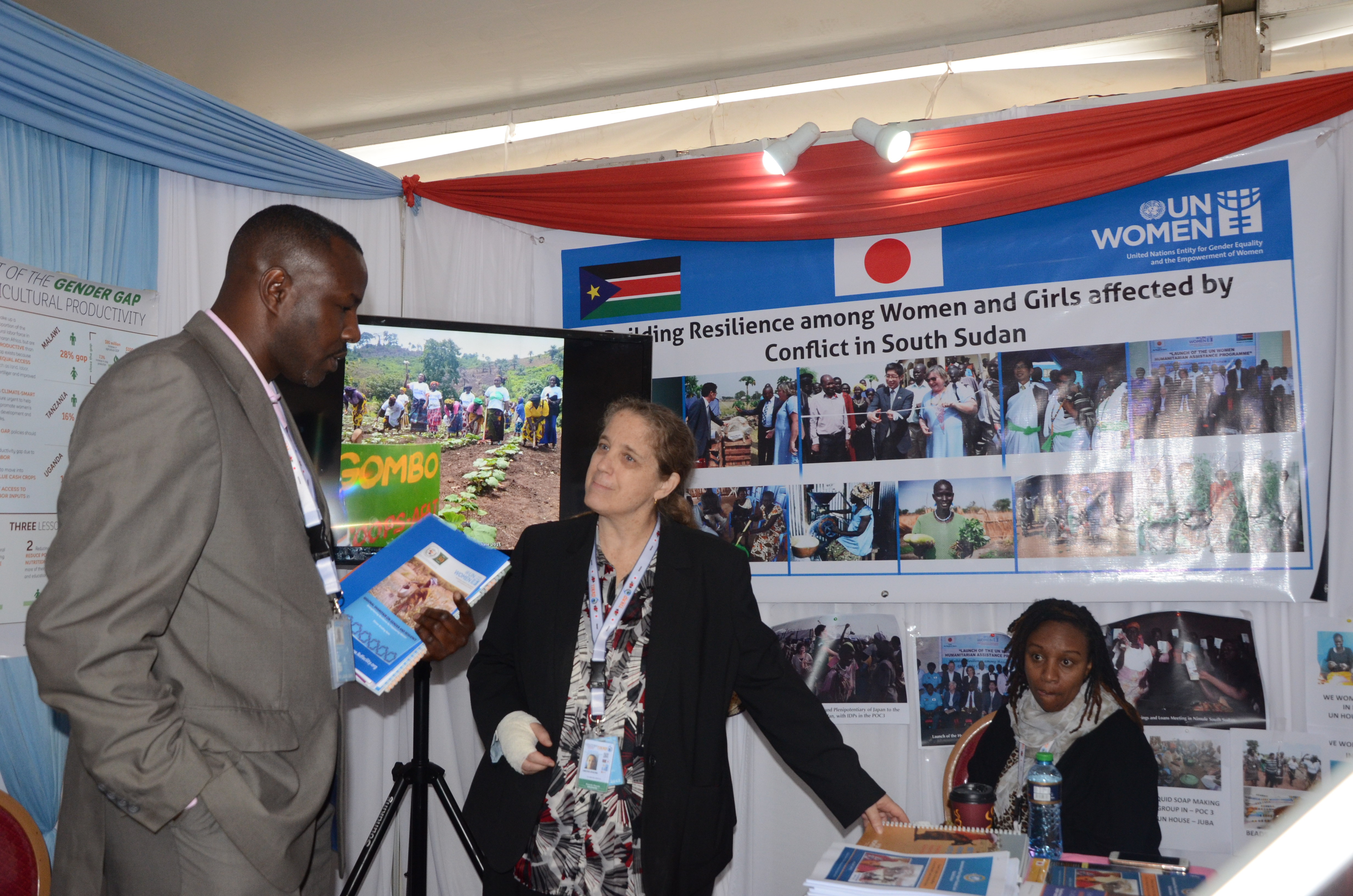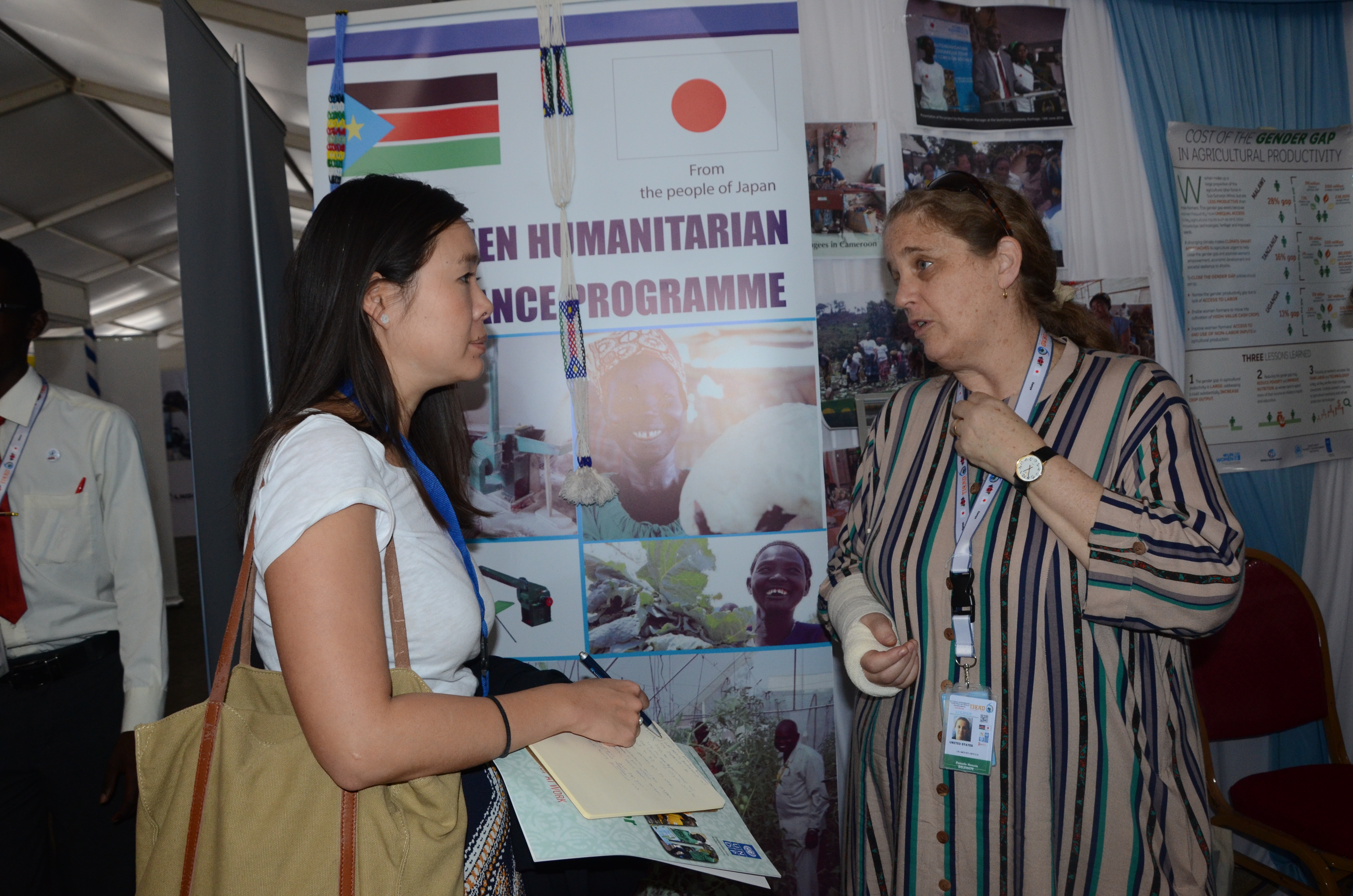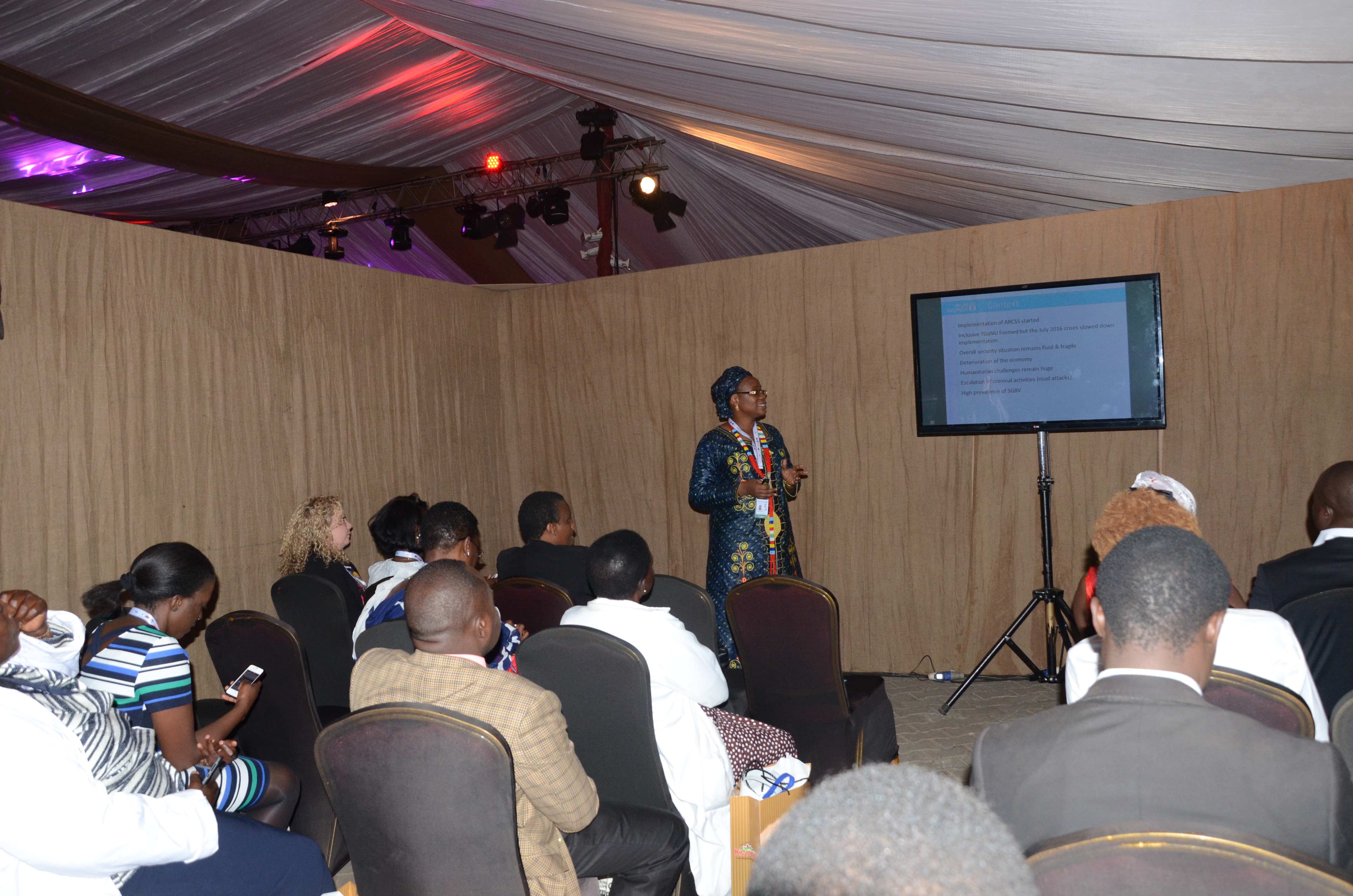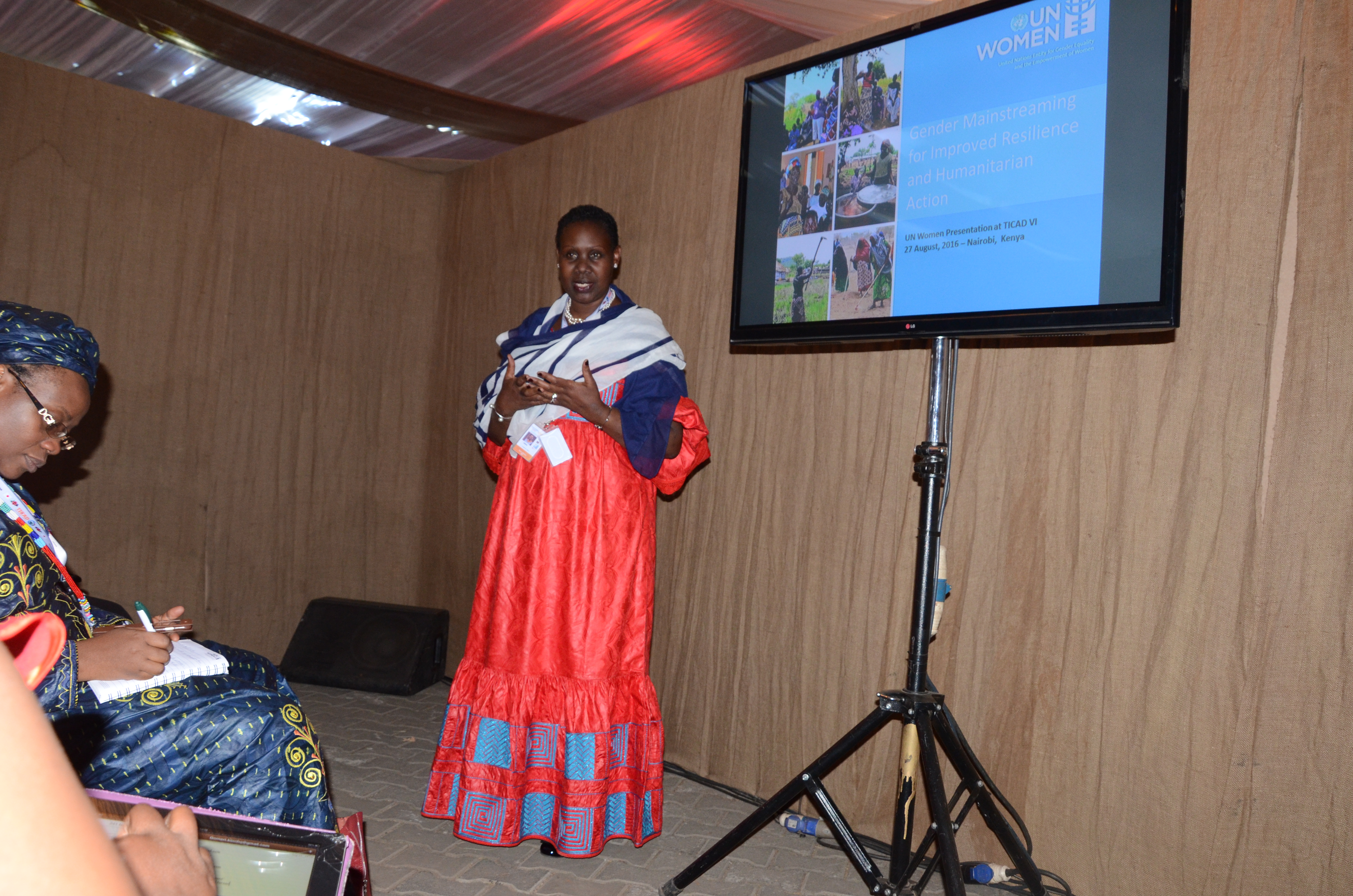Snapshots from TICAD VI: Gender Equality and Women’s Empowerment critical in achieving the SDGs
Date:
Nairobi, Kenya: Gender Equality and the Empowerment of Women are critical in achieving the Agenda 2030 for Sustainable Development. This is a key message highlighted during the Sixth Tokyo International Conference on African Development (TICAD VI) Summit held at Kenyatta International Convention Center in Nairobi, Kenya on 27-28th August 2016.
In a session on peace building through promoting Gender Equality and Women’s Empowerment, it was noted that there is a growing recognition in international arena about the importance of women's role in peace building - which led to the adoption of a series of resolutions including the United Nations Security Council Resolution 1325 (UNSCR 1325) on women, peace and security in 2000 - highlighting the role of women as active agents of peace building, rather than as mere victims of armed conflicts and violence. This also affirmed the importance of women's full participation at all stages of conflict prevention, resolution and peace building. The session looked at the roles that governments, international organizations and civil societies can play to promote gender equality and women and girls' empowerment in peace building in Africa.
Kenya’s President, H.E Uhuru Kenyatta, also noted that Africa has made progress in terms of implementing global commitments on gender equality and the empowerment of women. “We have major continental frameworks that demonstrate our ownership of this issue. These include: the Maputo protocol, the AU solemn declaration on gender equality in Africa and, more recently Africa’s agenda 2063,” said H.E Uhuru Kenyatta.
TICAD VI was also used to officially launch the second Africa Human Development Report themed “Accelerating Gender Equality and Women’s Empowerment in Africa”. Speaking at the launch, United Nations Development Programme (UNDP) Administrator Helen Clark said the report’s recommendations are highly relevant to achieving the African Union’s Agenda 2063 and the United Nation’s Sustainable Development Goals.“Gender equality is the sole focus of one of the seventeen SDGs, and is critical to progress across the rest of Agenda 2030,” Ms Clark said.
The report looks at how to address persistent gender gaps across the economic, social, environmental and political spheres. MS Clark said giving greater attention to gender equality will support faster and more inclusive human development and economic growth for Africa.
UN Women showcased the broad range of its work across Africa to mainstream gender into the humanitarian and resilience agenda by participating in various sessions, presentation by the Kenya, South Sudan and Uganda Country Offices to the delegates and an exhibition booth.
UN Women Exhibition booth at TICAD VI. Photo credits: UN Women/Martha Wanjala
Japan launched the Tokyo International Conference on African Development (TICAD) in 1993 in order to refocus international attention on the importance and urgency of African development issues as well as to promote high-level policy dialogue between African leaders and development partners.
TICAD aims to promote high-level policy dialogue between African leaders and their partners; and mobilize support for African-owned development initiatives.
UN Women staff presenting to delegates on its work across Africa to mainstream gender into the humanitarian and resilience agenda. Photo credits: UN Women/Martha Wanjala



